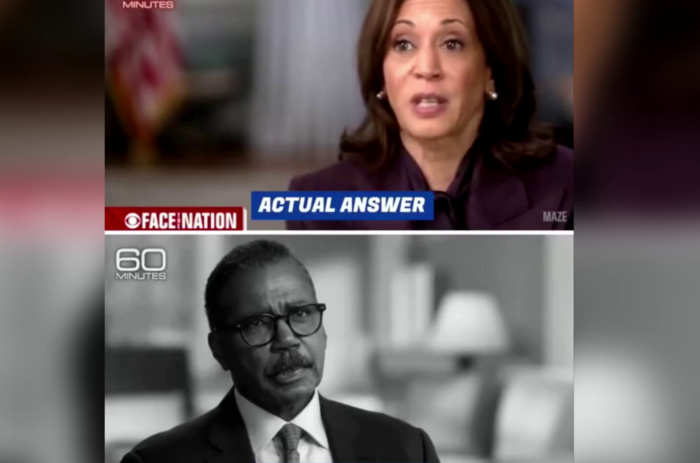redo Jump to...
print Print...
Directions
-Read the excerpt below from the "Best of the Web" post by The Wall Street Journal's OpinionJournal editor James Taranto.
-Read "Types of Media Bias" here (found on the website under "Resources" OR on the app under "More"). Then answer the questions.
From a post by OpinionJournal.com’s editor James Taranto (original post date 1/10/14):
Republican Sen. Ted Cruz gave a speech in his home state of Texas this morning, and here’s how the Associated Press’s Chris Tomlinson reported it:
Cruz told a conservative conference in Austin Friday that President Barack Obama is lawless, dangerous and terrifying, providing the right-wing rhetoric to his base that makes him so popular in his home state.
The conservative Republican laid out his reasoning for why he thinks the president is “dangerous and terrifying,” noting last minute exemptions that the Obama administration made to key provisions of the Affordable Care Act, refocusing enforcement of immigration laws away from certain groups of people in the country illegally, and deciding to allow Colorado and other states to experiment with legalizing marijuana. . . .
Cruz mocked Obama on the final day of the conference organized by the Texas Public Policy Foundation, but offered few new ideas.
But an account by Jonathan Tilove for the Austin American-Statesman suggests that Tomlinson’s version was misleading:
“We are a nation of laws and not men,” said Cruz. “If we had a system where a president can pick and choose what laws to follow at utter whim . . . that is seriously dangerous.”
Cruz said the liberal media refuses to accurately report the threat to liberty of the Obama presidency, and makes excuses for the president’s overreaches.
But, he said, “If you’re a liberal, if you’re a Democrat, if you’re a reporter for the New York Times, maybe you’re saying, ‘he’s my guy. I root for my guy. I don’t like some of the things he’s doing but he’s basically my guy so he’s OK.’ “
But Cruz warned those with that mindset that they ought to contemplate that their “guy ain’t gonna be there forever. If this president has that power so does the next one and the next one and the next one, and my message to all the Democrats and all the liberals is, what do you think about the next president, maybe a Republican, having the power Barack Obama has as a president who is not bound by the law?”
“If you love liberty, that should concern you greatly,” said Cruz.
Note the crucial difference: According to (the AP’s) Tomlinson, Cruz said “that President Barack Obama is lawless, dangerous and terrifying,” whereas according to (the Austin American-Statesman’s) Tilove what he described as “dangerous” was “a system where a president can pick and choose what laws to follow at utter whim.”
It’s possible the two reporters were referring to different parts of the speech, but Cruz’s appeal to liberals to consider the dangers of unchecked executive power, reported only by Tilove, shows at least that the senator was doing something more than, as Tomlinson puts it, providing “right-wing rhetoric to his base.” …
To accurately identify different types of bias, you should be aware of the issues of the day, and the liberal and conservative perspectives on each issue.
Types of Media Bias:Questions
1. What type of bias does the Associated Press reporter Chris Tomlinson display in his interpretation of conservative Sen. Ted Cruz’s speech?
2. From the AP website, former board chairman Frank Batten said: “The people of the AP are part of the fabric of freedom. They are the honest messengers… always committed to getting out the news as thoroughly and as accurately as possible.” Do you think Mr. Tomlinson’s report on Sen. Cruz’s speech fulfills this mission? Explain your answer.
3. From the AP’s “Statement of News Values and Principles”: “…we must be fair. Whenever we portray someone in a negative light, we must make a real effort to obtain a response from that person. When mistakes are made, they must be corrected – fully, quickly and ungrudgingly. And ultimately, it means it is the responsibility of every one of us to ensure that these standards are upheld. Any time a question is raised about any aspect of our work, it should be taken seriously.
Read the “Background” below about the Associated Press. Why is it especially important for all AP reporters to be fair and accurate?
Scroll down to the bottom of the page for the answers.
Background
WHAT IS THE ASSOCIATED PRESS?
- The Associated Press (AP) is a news service that provides content of all kinds to thousands of newspapers, radio stations, television networks and web sites. The Associated Press is the most commonly used of all news services.
- With bureaus across America and the world, the AP generates articles, photos, graphics and video that is used by newspapers and other resources that pay to subscribe. …
- The AP allows news providers to utilize content from parts of the world they could otherwise never cover.
- The AP comprises 242 bureaus and employs 3,700 people worldwide. It serves 1,700 U.S. newspapers and 5,000 radio and TV outlets. There are also 8,500 international subscribers [news outlets] covering 121 total countries. [Note: there are 196 independent countries in the world]
(As you read news in the future, begin to look for AP next to the dateline of a news article. It indicates that the story was written by an AP reporter and purchased by the newspaper. A dateline is a line at the beginning of a news story giving the name of city from which the story was sent. Note the number of news articles coming from the same source – the AP)
From their website, the fundamental mission of the Associated Press (AP) is “to provide state, national and international news, photos, graphics, broadcast and online services of the highest quality, reliability and objectivity to its domestic owners as economically as it can. News bearing the AP logotype is expected to be accurate, balanced and informed.” (ap.org/pages/history/mission.htm)
[The AP recently changed its website: this quote is archived here.]
Also, view The Associated Press’ Statement of News Values and Principles.
Answers
1. In his interpretation of conservative Sen. Ted Cruz’s speech, Associated Press reporter Chris Tomlinson displays bias by spin. Spin is a reporter’s subjective comments about objective facts.
2. Opinion question. Answers vary.
3. It especially important for all AP reporters to be fair and accurate because of its size and reputation. The AP comprises 242 bureaus and employs 3,700 people worldwide. It serves 1,700 U.S. newspapers and 5,000 radio and TV outlets. There are also 8,500 international subscribers [news outlets] covering 121 total countries of the 196 independent countries in the world. A large majority of news reports today are from AP reporters.



